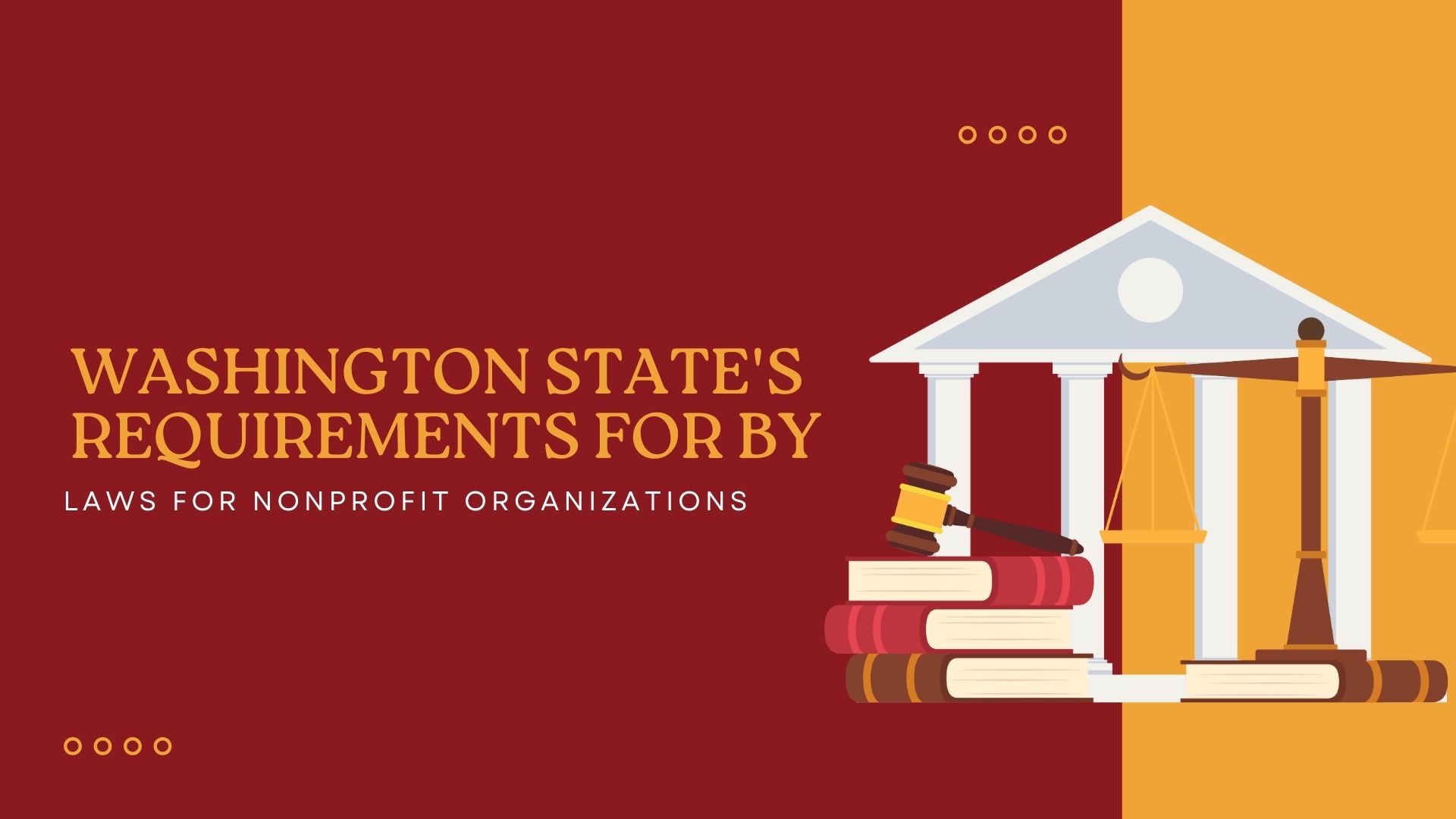In Washington State, nonprofit organizations must adhere to specific requirements when it comes to drafting and maintaining their bylaws. Bylaws are a foundational document for any nonprofit, as they outline the organization’s structure, operations, and rules for governance. Understanding Washington State’s requirements for by laws for nonprofit organizations is crucial for ensuring legal compliance and establishing clear, effective policies for the group’s management.
What Are Bylaws?
Bylaws are the internal rules and regulations that govern the operations of a nonprofit organization. They define the responsibilities and powers of the board of directors, the procedures for elections, the rights and duties of members (if applicable), and how meetings will be conducted, among other governance-related matters. Bylaws provide a framework for the organization’s day-to-day functioning and serve as a guide for resolving internal disputes.
Washington State’s Requirements for Bylaws
While Washington State law does not mandate a specific format or structure for nonprofit bylaws, there are certain key provisions that must be included to meet legal standards and ensure the organization operates smoothly. Here are some of the important requirements:
- Board Structure and Governance
Washington State law requires that the nonprofit organization establish the structure of its board of directors in the bylaws. This includes specifying the number of directors, their roles, terms of office, and how they will be elected or appointed. Nonprofits must have a minimum of three directors, and these directors should not be related by blood or marriage. - Powers and Duties of Directors
The bylaws must clearly define the powers and duties of the board of directors, including how decisions will be made and what actions require board approval. It is also important to outline the procedures for holding board meetings, including how often they will occur and how directors will be notified. - Member Rights and Responsibilities
If your nonprofit organization includes members (as opposed to a board-only structure), the bylaws should outline the rights and responsibilities of those members. This includes membership eligibility, voting rights, dues (if applicable), and how members can attend and vote at meetings. - Meetings and Voting Procedures
Washington State’s nonprofit law requires that bylaws establish procedures for both board meetings and member meetings, if applicable. This includes guidelines for meeting notices, quorum requirements, and voting procedures (including proxy voting). The bylaws should also define how and when annual meetings will occur. - Conflict of Interest Policy
Nonprofits are encouraged to have a conflict of interest policy in their bylaws to ensure transparency and accountability. This policy should outline how board members and officers must disclose any personal or financial interests that could influence their decisions in the organization’s affairs. - Amendment of Bylaws
The bylaws should include a provision on how they can be amended. This typically requires a vote of the board or members and should define the procedure for proposing and approving changes. - Dissolution Clause
The bylaws must include a provision regarding the dissolution of the nonprofit. In the event that the nonprofit organization is dissolved, the bylaws should specify how any remaining assets will be distributed. According to Washington State law, remaining assets should generally be distributed to another nonprofit organization or a similar tax-exempt entity, not to individuals.
Compliance with State and Federal Law
In addition to meeting Washington State’s requirements for by laws for nonprofit organizations, it is also important for nonprofits to ensure that their bylaws comply with federal laws. For example, the bylaws must reflect compliance with IRS regulations if the organization is seeking or has tax-exempt status under section 501(c)(3) of the Internal Revenue Code.
Filing Requirements
While bylaws themselves are not filed with the state, Washington State requires nonprofits to file articles of incorporation with the Washington Secretary of State. The bylaws should be kept on file at the nonprofit’s main office and available for inspection by members, directors, or any other individuals as allowed by the organization’s governing rules.
Conclusion
Creating and maintaining accurate bylaws is an essential step for any nonprofit organization in Washington State. By adhering to Washington State’s requirements for bylaws for nonprofit organizations, you ensure that your nonprofit is legally compliant, transparent, and well-structured. Having clear, well-drafted bylaws will provide the foundation for effective governance and help guide the organization toward fulfilling its mission.
If you need assistance drafting bylaws or reviewing your current document, it’s advisable to consult with a legal professional familiar with nonprofit law in Washington State to ensure compliance and avoid common pitfalls.
